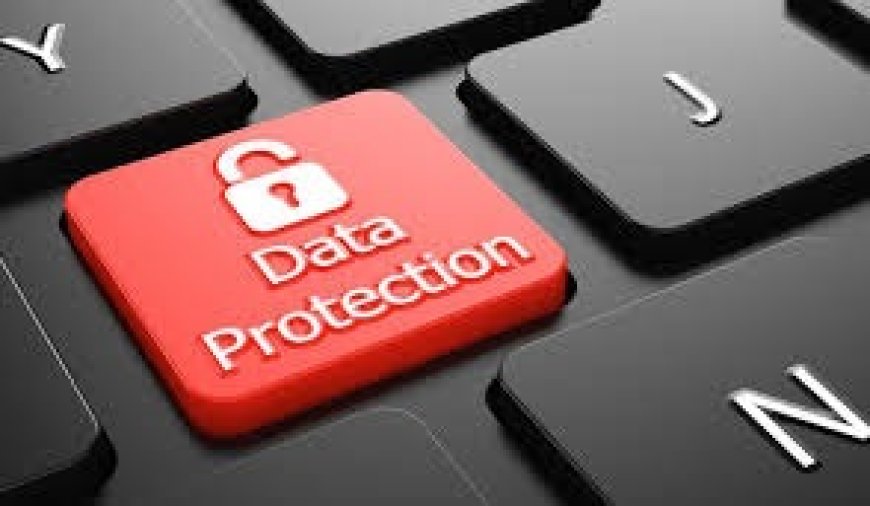How to Protect Yourself from Privacy Breaches
This article discusses privacy breaches, outlining their definitions, risks, and implications for individuals. It provides actionable strategies to protect personal information, including education on threats, using strong passwords and two-factor authentication, regularly monitoring accounts, limiting information sharing, securing devices, and disposing of sensitive information securely. With these proactive measures, individuals can protect themselves in a digital world increasingly fraught with data vulnerability.

How to Protect Yourself from Privacy Breaches
In our increasingly digital world, privacy breaches have become an alarming reality, affecting millions annually. From massive data leaks at corporations to seemingly harmless apps harvesting personal information, privacy breaches can lead to identity theft, financial loss, and emotional distress. But how can you safeguard your personal information in such a volatile landscape? Here are some effective strategies to help you protect yourself from privacy breaches and maintain control over your data.
Understanding Privacy Breaches
Before diving into protective measures, it's essential to comprehend what privacy breaches entail. A privacy breach occurs when unauthorized individuals gain access to sensitive personal information, such as social security numbers, credit card details, or health records. These breaches can result from cyberattacks, poor data security practices, or human error within organizations. For individuals, the consequences can range from financial fraud to reputational damage, making it imperative to take preventive measures.
Educate Yourself About Risks
The first step toward protection is education. Understand the types of data that can be compromised and the tactics employed by cybercriminals. Phishing scams, for instance, use deceptive emails or websites that appear legitimate, tricking you into providing sensitive information. Learn to identify the signs of such scams, such as poor grammar, suspicious links, or unsolicited requests. Familiarity with common threats will empower you to recognize potential vulnerabilities in real-time.
Use Strong and Unique Passwords
As one of the cornerstones of online security, strong and unique passwords are crucial. Avoid using easily guessable information, such as birthdays or common words. Instead, create complex passwords that include a mix of uppercase and lowercase letters, numbers, and symbols. Furthermore, never reuse passwords across multiple accounts; if one becomes compromised, your other accounts may become vulnerable. Consider using a password manager to generate and store complex passwords securely.

Enable Two-Factor Authentication (2FA)
Two-factor authentication adds an extra layer of security to your accounts. It typically requires two forms of verification: something you know (like your password) and something you have (like a smartphone or authentication app). Even if someone manages to acquire your password, they would still need the second form of verification to access your account. Enable 2FA on all accounts that offer it, particularly for your email, social media, and financial platforms.
Regularly Monitor Your Accounts
Staying vigilant is crucial in catching potential breaches early. Regularly monitor bank statements, credit card transactions, and online accounts for any suspicious or unauthorized activity. If you notice something amiss, report it immediately to your financial institution and take steps to secure your accounts. Additionally, consider subscribing to credit monitoring services that can alert you to any changes in your credit report.
Limit Personal Information Sharing
In a world driven by social media, oversharing is a common issue. Be cautious about the personal information you share online—particularly on public platforms. Limit the amount of information visible in your profiles and think critically about the potential repercussions of revealing your location, birthdate, or relationship status. Remember, the more information you share, the easier it is for cybercriminals to exploit that data.
Secure Your Devices
Your devices are gateways to your personal information, so securing them is paramount. Ensure you have robust antivirus and anti-malware software installed on your computer and smartphone. Keep your operating system and software updated to protect against vulnerabilities. Likewise, use a virtual private network (VPN) when accessing public Wi-Fi networks to encrypt your internet connection, reducing the risk of data interception.
Dispose of Sensitive Information Safely
When discarding devices, always wipe them clean of personal data. For computers and smartphones, this often involves performing a factory reset and ensuring your data is unrecoverable. Likewise, when disposing of paperwork that contains personal information, shred it instead of tossing it in the trash.
In an era of rampant data breaches, protecting your privacy requires vigilance and proactive measures. By educating yourself on risks, employing strong passwords and two-factor authentication, monitoring your accounts, limiting personal information sharing, securing your devices, and safely disposing of sensitive information, you can significantly reduce the chances of falling victim to privacy breaches. The onus of protection lies with you; take charge of your data and reclaim your digital privacy.
What's Your Reaction?







































































































